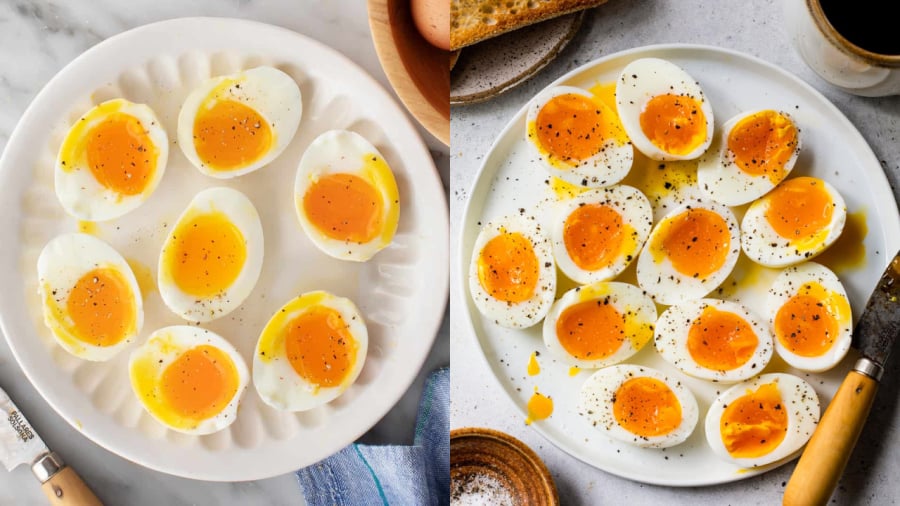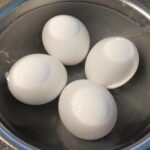Soft-boiled eggs are a delicacy loved by many. The egg whites are perfectly set but not overly hard, while the yolks remain soft, runny yet not liquid. Soft-boiled eggs have an appealing texture, offering a creamy and smooth sensation without any fishy taste or dryness.
Boiling Time for Soft-Boiled Eggs
To achieve the perfect soft-boiled egg with a creamy yolk, timing is of utmost importance.
Firstly, allow the eggs to sit at room temperature for at least 15-20 minutes before boiling. Taking them straight from the fridge to the boiling water may cause the eggs to crack due to the drastic temperature change, resulting in the whites and yolks leaking out. If you forgot to take them out in advance, you can soak the eggs in warm water for about 5 minutes before boiling.
Fill a pot with just enough water to cover the eggs. Cover the pot and bring the water to a rolling boil. Once the water is boiling vigorously, gently lower the eggs into the pot. Remember to do this gently to avoid breaking the eggs. Adding a pinch of salt or a dash of vinegar to the water helps prevent cracking and makes peeling easier.
Reduce the heat to a gentle boil. When you first put the eggs in, you can gently stir them in one direction with a pair of chopsticks or a spoon to center the yolks. This ensures that when you cut the eggs in half, they look neat and aesthetically pleasing.
Once the water returns to a gentle boil, start timing. For a soft-boiled egg with a creamy yolk, boil the eggs for approximately 6 and a half to 7 and a half minutes. This duration strikes a balance, ensuring the yolks are neither runny nor dry. If you prefer a softer yolk, boil the eggs for 6 and a half minutes, and for a slightly thicker yolk, go for 7 and a half minutes. Depending on the size of the eggs, you may need to adjust the timing slightly, but avoid overboiling.
As soon as the timer goes off, promptly remove the eggs and plunge them into a bowl of ice-cold water. This step is crucial for halting the cooking process and achieving the desired creamy texture. Soaking the eggs in ice water also makes them easier to peel. Leave the eggs in the water for 5-10 minutes to cool down, and then peel them.
Since the eggs are only partially cooked, both the whites and yolks are quite soft. Exercise caution when peeling to avoid breaking the eggs.

Additional Tips for Better Soft-Boiled Eggs
For boiled eggs, it’s best to use eggs that are a few days old. Freshly laid eggs have excellent flavor, but they can be challenging to peel after boiling. Ideally, go for eggs that have been refrigerated for 3-5 days.
Ensure that the eggs are completely submerged in the water when boiling. This ensures even cooking and easier timing control.
Avoid a vigorous boil, as it may crack the eggs and overcook them. A gentle boil with simmering water is preferable, and then adjust your timing accordingly.
After boiling, immerse the eggs in a bowl of ice-cold water (the colder, the better) to halt the cooking process and maintain the desired yolk consistency.
Soft-boiled eggs are incredibly versatile and can be paired with various dishes. The simplest way to enjoy them is with toasted bread. The crispness of the toast complements the creamy egg, making it a popular choice for many.
You can also incorporate soft-boiled eggs into different types of noodles. Korean and Japanese cuisines often feature this style of egg. The eggs are halved, revealing the creamy yolks, and then placed atop a bowl of noodles for a visually appealing dish.
Additionally, soft-boiled eggs can be soaked in soy sauce and enjoyed with rice or noodles according to your preference.
While soft-boiling an egg may seem straightforward, these little tips and tricks ensure a perfect result every time. With these guidelines, you can master this technique without breaking a sweat.



































